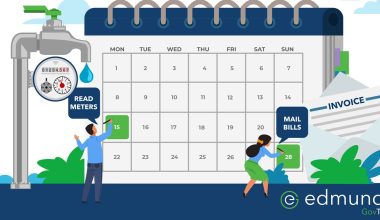A recent FBI press release described how a dishonest employee of a North Carolina municipality embezzled over $90,000. It seems she was issuing receipts for cash payments and pocketing the cash, then adjusting the accounts so customers wouldn’t notice the missing payments. She was caught when she failed to adjust a customer’s account for a payment she kept and the customer produced the payment receipt.
Could something like this happen in your office…?
Poor internal controls
Clearly this was a case of management not implementing effective internal controls and not maintaining proper separation of duties, as the last post described.
Never, ever should the employee who receives payments be the same person who also approves adjustments to customer accounts. Something as basic as having a supervisor review and approve adjustments could have identified this fraud immediately.
My experience with fraud cases
In my career spanning 30 plus years, I’ve assisted in explaining or investigating a handful of utility embezzlement cases. Each of these cases involved dishonest employees pocketing cash payments. Some were more creative than others in attempting to cover it up.
One case involved a customer service clerk who embezzled security deposits paid in cash. This employee then used a supervisory override to enter the deposit in the system without receipting the cash. This way, the customer would still have a deposit applied to their final bill and wouldn’t complain. This practice went undetected for several years. Had this utility been reconciling deposits on a regular basis, this would have been detected the first month it happened.
Another case involved a cashier voiding every cash payment in a day’s work and pocketing the cash. Obviously, this wasn’t the smartest embezzler, as the fraud was caught the next month when multiple customers complained after receiving bills with no payments credited to their accounts. Even though the embezzlement was caught quickly and the employee was immediately fired and prosecuted, the entity involved still had to deal with the negative publicity and the ensuing investigation.
Adopt a cash handling policy
Every office should have a written cash handling policy that all employees are familiar with and abide by.
Here are some standard practices that should be included in a comprehensive cash handling policy:
- Assign each cashier a separate cash drawer
- Issue hand written receipts only in emergencies
- Receipt payments as they happen
- Account for cash overages and shortages
- Monitor voided payments
- Have a second employee double check each deposit
Let’s take a look at each of these in more depth…
Assign each cashier a separate cash drawer
Many smaller offices share a single cash drawer out of convenience. However, if you experience cash balancing problems, the only way to identify the responsible party is for each cashier to be accountable for their own cash drawer.
Issue hand written receipts only in emergencies
Hand written receipts should be avoided at all costs, unless the power is out or your system is down. Issuing hand written receipts and pocketing the cash is the most prevalent method of embezzling payments.
If your software isn’t capable of generating a receipt for all types of payments, including cash receipts that aren’t billed, it’s time to look for new software!
Receipt payments as they happen
Payments should be receipted as they take place. Many offices allow customers to drop off checks and enter them in the system later. This is not a good cash management policy and should be avoided. If employees see this as acceptable for check payments, will they also be tempted to do the same for cash payments?
Account for cash overages and shortages
Cash overages and shortages should be tracked by cashier. Even the best cashiers make mistakes counting change, so an occasional cash overage or shortage is to be expected. Not tracking overages and shortages makes it easier for employees to shortchange a customer and keep the cash. For utilities that base employee evaluations on performance measures, the number and amount of cash overages or shortages is an excellent performance measure for cashiers.
Monitor voided payments
All voided payments should be reviewed and accounted for, especially voided cash payments. An excessive number of voided payments, while not necessarily indicative of embezzlement, may often be the sign of a careless cashier.
Interestingly, our Utility Billing Software includes a void payment edit list because, years ago, a very astute finance director had a feeling one of her cashiers was voiding too many payments and wanted a way for these to be monitored.
Have a second employee double check each deposit
Each cashier’s daily deposit should be double checked by another employee. This ensures accuracy and accountability and sends a signal to your staff that honesty and integrity are essential.
Is it time to review your cash handling policy?
Have you reviewed your cash handling policy recently? If not, this might be a good time to do so.
If you don’t have one, I encourage you to develop and adopt one.


